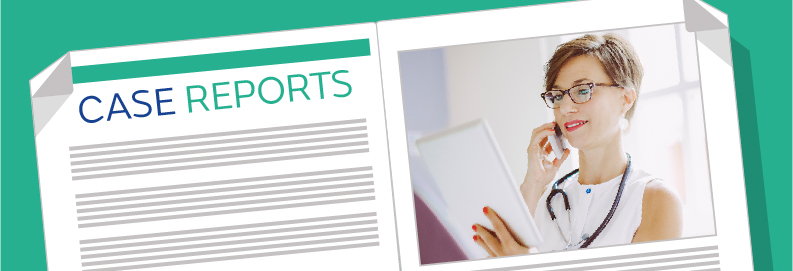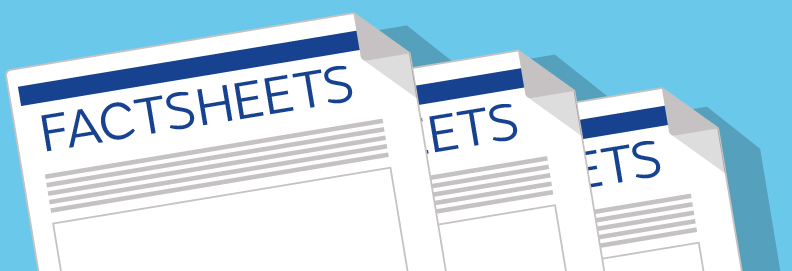Making audio and visual recordings of patients
Making and using audio and visual recordings of patients can benefit medical training, research and treatment. However, it poses risks for doctors regarding consent and confidentiality. In addition, all recordings from which living individuals can be identified constitute personal data and are subject to the provisions of the Data Protection Act.
Read moreArticle contains
Tagged in...
Reporting deaths to the Coroner - Northern Ireland
If a death occurs in a violent or unnatural manner, in custody, or suddenly but without certain cause, a coroner has a duty to enquire into the death. This factsheet sets out the role of a coroner, the reporting process and what will happen once you have reported a death to the coroner.
Read moreArticle contains
Tagged in...
Confidentiality – Disclosures relating to patients unable to consent - Northern Ireland
You owe a duty of confidentiality to all your patients, past or present, even if they are adults who lack capacity. You may be asked to provide information from the medical records of patients who are incapable of giving consent, are aged under 18, or have died. This factsheet gives you further information about dealing with these circumstances.
Read moreArticle contains
Tagged in...
MPS supports the Government’s plans to cap excessive legal fees
New legal test for good Samaritan acts
In April, the Social Action, Responsibility and Heroism Act 2015 came into force in England and Wales. It sets out some additional factors that a court must consider when assessing a negligence claim or alleged breach of duty.
Read moreArticle contains
Tagged in...
Health charges for visitors and migrants - England
The Immigration Act 2014 and recently updated regulations on charging overseas visitors for NHS care have led to changes in the way overseas visitors and migrants are charged for NHS care. Although mainly an administrative issue, there are key points that need to be understood by clinicians to ensure that patients are treated appropriately and their information is safeguarded.
Read moreArticle contains
Tagged in...
Controlled drugs - England
Under the Misuse of Drugs Act (1971) and the Misuse of Drugs Regulations (2001), GPs have a responsibility for controlled drugs (CDs) within their practice. This factsheet highlights what you should be aware of when carrying, storing and recording controlled drugs.
Read moreArticle contains
Tagged in...
Flexible working: Your questions answered
Flexible working was introduced to help employees achieve a better 'work-life' balance. Croner frequently answer questions on their advice line from practices about flexible working
Read moreArticle contains
Tagged in...
The light: Group practice
Charlotte Hudson, deputy editor of Practice Matters, interviews Nick Giles, area operations manager for the One Medical group - The Light, Leeds, about the secret to the practice's success.
Read moreArticle contains
Poor complaints handling
The key to resolving many complaints is handling them early on at a local level. Terri Bonnici, MPS medical complaints adviser, presents a case study showing what could happen if you don’t get to grips with a complaint in the early stages.
Read moreArticle contains
Tagged in...
Access to medical reports - England
Doctors may, on occasion, receive a request from a patient’s employer for a medical report to be delivered directly to the HR department, without the patient seeing it. However, before any medical report can be provided, you must be satisfied that the patient has given valid consent to the release of the information. This factsheet looks at the issues surrounding medical reports for employers and other organisations, and offers advice to doctors who are asked to write reports.
Read moreArticle contains
Dealing with non-compliant patients - Northern Ireland
A doctor’s primary concern is to do their best for their patients; this includes giving advice and treatment, and arranging investigations in accordance with the current evidence base and the patient’s best interests.
Read moreArticle contains
Tagged in...
Safeguarding children - Wales
The GMC states that “Whether or not you have vulnerable children or young people as patients, you should consider their needs and welfare and offer them help if you think their rights have been abused or denied.” Surgery consultations, home visits, accident and emergency admissions and contact with other professionals who work with children help to build up a picture of a child’s situation.
Read moreArticle contains
Tagged in...
Safe prescribing - Wales
Medication errors account for approximately 20% of all clinical negligence claims against doctors in both primary and secondary care. The costs associated with adverse events and inappropriate prescribing in the UK has been estimated at more than £750 million per year. This factsheet gives advice about avoiding prescribing errors.
Read moreArticle contains
Tagged in...
Safeguarding children - England
The GMC states that “Whether or not you have vulnerable children or young people as patients, you should consider their needs and welfare and offer them help if you think their rights have been abused or denied.” Surgery consultations, home visits, accident and emergency admissions and contact with other professionals who work with children help to build up a picture of a child’s situation.
Read moreArticle contains
Communicating with patients by text message - England
Text messaging allows practices to target and contact hundreds of patients within minutes. Patients can respond by text with replies automatically forwarded to a specified email address. Many practices are signing up to using a text messaging service to inform patients of appointments, flu vaccinations, etc.
Read moreArticle contains
Consent - The basics - England
Respect for patients’ autonomy is expressed in consent law; to impose care or treatment on people without respecting their wishes and right to self-determination is not only unethical, but illegal.
Read moreArticle contains
Tagged in...
Making audio and visual recordings of patients - England
Making and using audio and visual recordings of patients can benefit medical training, research and treatment. However, it poses risks for doctors regarding consent and confidentiality. In addition, all recordings from which living individuals can be identified constitute personal data and are subject to the provisions of the Data Protection Act.
Read moreArticle contains
Tagged in...
Making audio and visual recordings of patients - Scotland
Making and using audio and visual recordings of patients can benefit medical training, research and treatment. However, it poses risks for doctors regarding consent and confidentiality. In addition, all recordings from which living individuals can be identified constitute personal data and are subject to the provisions of the Data Protection Act.
Read more



